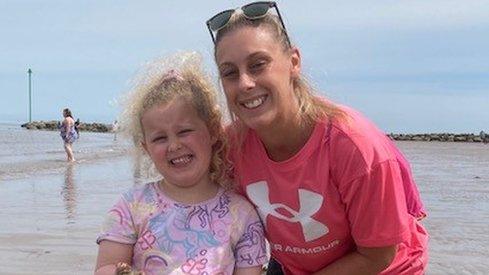Weather warning: Sunburn threat as Wales prepares for extreme heat
- Published
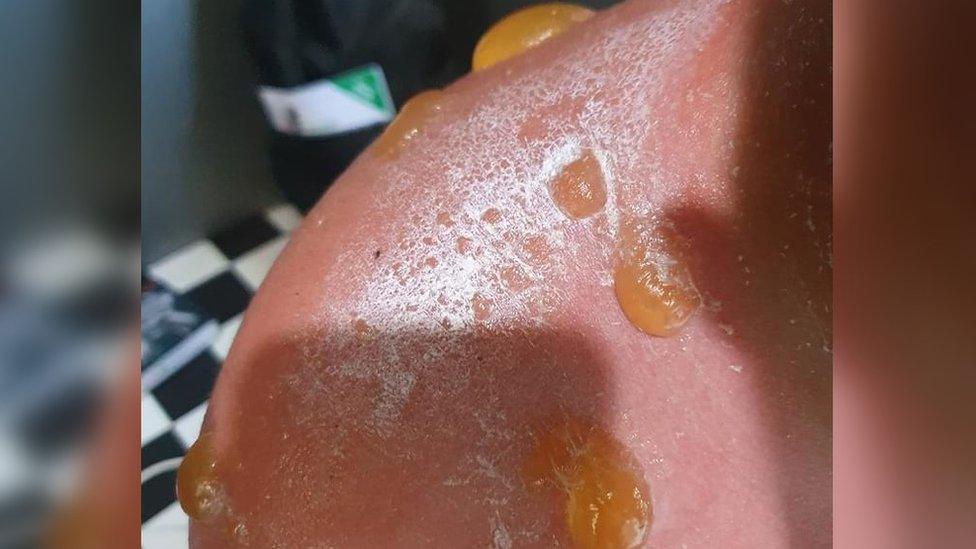
Owi hadn't considered how serious a sunburn can be
A mother has warned parents to be careful when children are enjoying the hot weather, after her 10-year-old son was badly sunburnt.
Rhian Wyn Lane said her son Owi was playing in a paddling pool and wearing sun cream all day.
But when he woke up the next morning he was sick and had severe sunburn.
On Friday an amber extreme heat weather warning, external was extended to all of Wales on Monday and Tuesday, with temperatures of 38C (100F) forecast in parts.
In England, a red extreme heat warning has been issued by the Met Office for next week, as temperatures could hit 40C (104F).
'They often put on sun cream, but it wasn't enough'
Rhian, from Porthmadog, Gwynedd, said her children "were in and out of the pool all day... they often put on sun cream, but it wasn't enough".
"It doesn't matter what factor sun cream you put on, you can still get burned," she added.
Five days later the burned skin turned into painful blisters.
Owi says he was playing in a paddling pool during the day but woke in agony the next morning
Owi said he did not think it was possible to burn "so bad" in a pool, and will wear a t-shirt when he is out in the sun in future.
Rhian is now urging parents to be aware of the dangers of playing in the sun.
She put photos of Owi's burnt skin on Facebook "to remind people how important it is not just to put sun cream on, but to check the bottles".
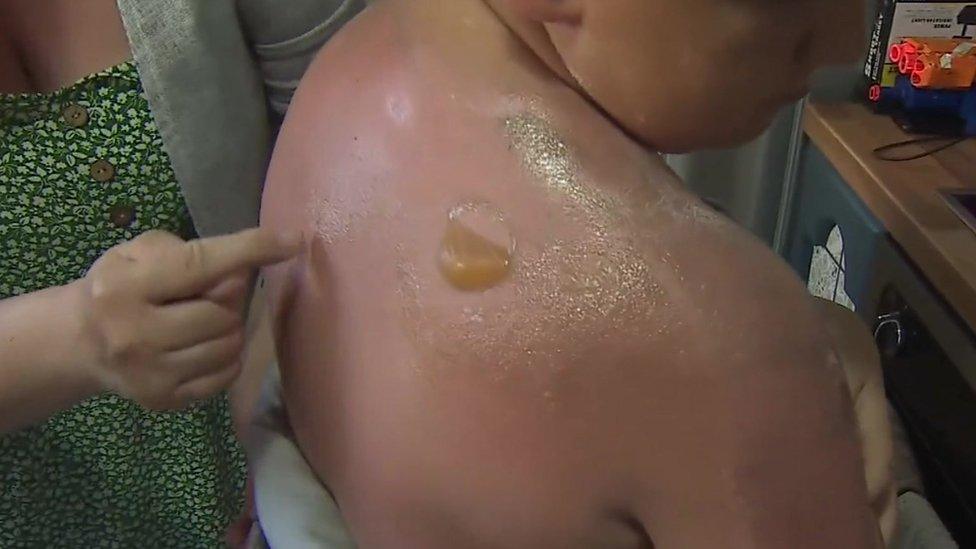
Owi has been given an ointment to try to ease the "mega painful" sores
Experts said children should be wearing sun cream that is at least factor 30 or higher.
Dr Hywel Dafydd, a consultant who specialises in plastic surgery in Cardiff, warns about the long-term danger of sunburn.
"Over the past two weeks we have seen 30 children asking for help after burning in the sun," he said. "During the same period last year, we only had five.
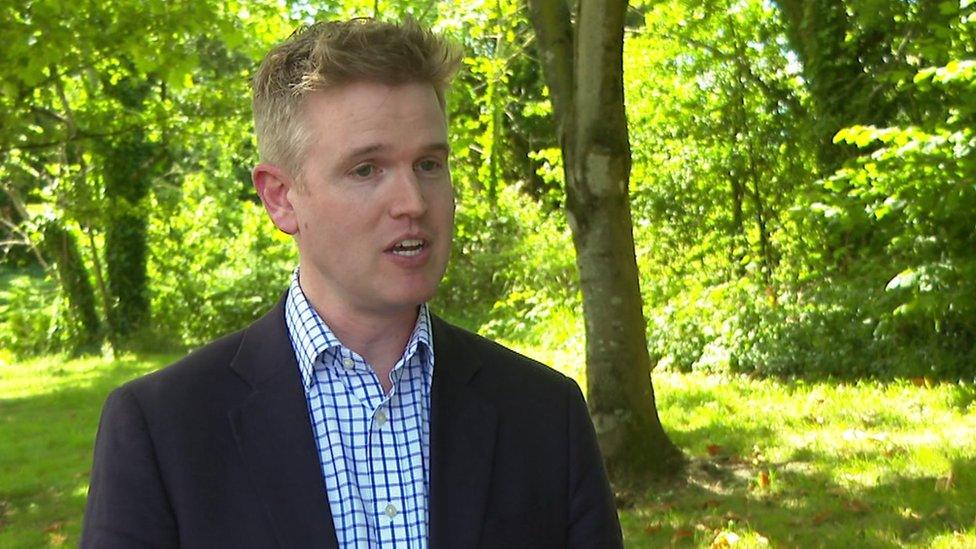
Dr Hywel Dafydd says sunburns can lead to skin cancer
"So more children have already suffered this year. When it comes to long-term damage skin cancer is getting more prevalent year on year, so the long-term effects are increasing."
Wales-wide amber extreme heat weather warning
An amber weather warning, external is in place for east Wales on Sunday, with temperatures expected to reach beyond 30C (86F).
The amber warning has been extended to all parts of Wales for Monday and Tuesday, with a high of 38C (100F) forecast for Hawarden, Flintshire.
Temperatures are expected to surpass Wales' previous record of 35.2C (95.4F)
The Welsh Ambulance Service said it was "anxious" about an expected rise in emergency calls.
The service's director of operations told BBC Radio Wales Breakfast activity was up 10% during the last five days, compared to the cooler week before.
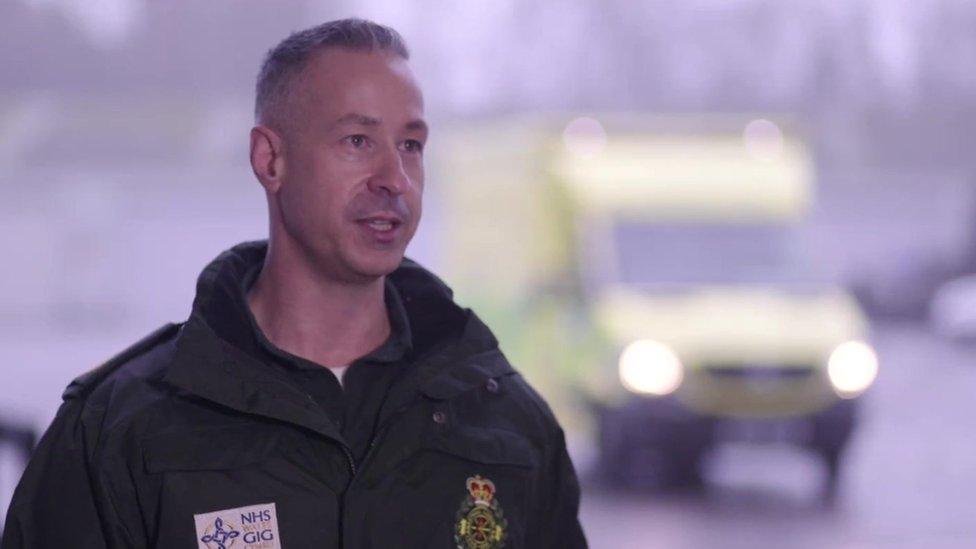
Lee Brooks from Welsh Ambulance Service says people shoud enjoy the hot weather "responsibly"
"What makes us anxious is if you look back to July last year we had a heat wave back then as well the month resulted in a 17% uplift in activity compared to the July before," Lee Brooks said. "So we are expecting a busy time."
Mr Brooks said there had been a notable rise in life-threatening emergencies related to breathing problems and chest pain.
"We absolutely want people to get the best time they can in our summer period… but equally we want people to do that responsibly and not add to an already very pressured service."

Enjoy the beer garden but not for too long in extreme heat, warns pub owner
Wayne Stephens, who owns the Stradey Arms pub and restaurant in Llanelli, said he is looking forward to it being a "busy weekend".
"Whenever it's warm the beer garden is full, it's great to see people coming out and enjoying themselves.
"Obviously we advise people to not spend the entire time outside in the heat but to come inside to cool down too. There'll be plenty of water here."
Travel disruption
Great Western Railway (GWR) has issued a travel warning as heat-related speed restrictions across the region are set to affect train services.
It also said trains will be busier and some journeys will be cancelled at short notice.

Companies are telling passengers to bring extra water and plan their journeys
Train journeys between Newport and Bristol Parkway on Sunday will be replaced by bus.
GWR will therefore be allowing people with tickets for travel on its services on Monday and Tuesday to travel on Wednesday and Thursday instead.
Customers who are delayed by 15 minutes may also be entitled to compensation.
Water released to save fish
Meanwhile, Natural Resources Wales (NRW) is releasing extra water into the River Wye to safeguard fish during the hot weather.
NRW's operations manager, Ann Weedy, said long periods of dry weather could lead to low water levels in rivers, which can badly affect fish.
Having less water causes overcrowding, leaving fish vulnerable to disease and predators.
It also heightens the risk of algal blooms, which can lead to less oxygen in the water, killing more fish.
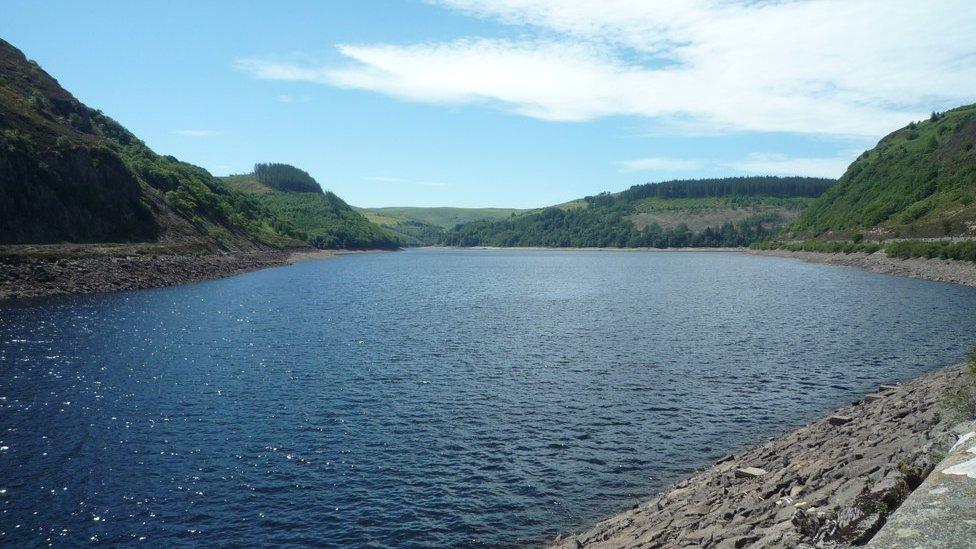
Extra water will be released from the Caban Coch reservoir, pictured, to top up the River Wye
"The climate emergency is real, and we can expect to see more extreme events like this in the future," Ms Weedy said.
The water release began on on Friday and will continue until Monday.
The water is going from Caban Coch reservoir, in Powys, into the Afon Elan before feeding into the Wye.
- Published15 July 2022

- Published9 July 2022

- Published14 July 2022

- Published6 May 2022

- Published12 July 2022
